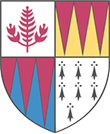Once admitted to a Stanford doctoral program, students are eligible to be nominated by their department for the EDGE program. For information about Stanford graduate programs and admission, start here.
Student Testimonials
 |
Daniel Ibarra, PhD student, Environmental Earth System Science EDGE-STEM was an integral part of my first year pursuing a PhD at Stanford. Through EDGE, I interacted with fellow students from diverse backgrounds and academic interests, and built a support network outside of my research group and department that I know will be essential to my success over the next several years. |
 |
Tiffany Brannon, PhD, Psychology, Former EDGE-SBE Mentor I have been a participant in the SBE-EDGE program since my first year of graduate study. My participation in the program has tremendously enhanced my graduate experience through opportunities to meet and network with peers in different departments, attend national conferences, as well as participate in summer training institutes. |
See more student testimonials.
Program Components
Graduate Student Mentors
Advanced graduate student mentors are one of the greatest assets of the EDGE programs. EDGE graduate mentors are advanced doctoral students who provide guidance and mentoring through regular meetings with first and second year EDGE fellows. Having successfully navigated the transition from first year students to candidacy, the mentors offer EDGE fellows valuable insight and unique perspectives on strategies for success.
Faculty Advising Team
A faculty advising team provides leadership for EDGE-SBE and EDGE-STEM and includes faculty advisors from the four participating schools. The faculty leadership supports EDGE participants in their programs and activities. Quarterly faculty advising lunches provide EDGE fellows with the opportunity to talk with faculty about all aspects of their experience, and especially about issues related to successful completion of their PhD programs.
Peer Support
The EDGE fellows community is an important source of social support for new doctoral students. Quarterly social events, such as picnics or dinners, provide students a chance to get to know each other and have fun as means of building a strong community of EDGE scholars from a wide range of disciplines.
Competitive Research Fund
To support EDGE Fellows in making progress on their dissertations, EDGE offers research-focused grants. Once per year, EDGE fellows receive a request for proposals to support original research projects that are approved by their primary academic advisor. EDGE fellows' research topics have covered a wide range of topics, including:
- Whether the diversity movement can create more inclusive organizational environments, improve inter-group relations and reduce status-based inequality in interaction and performance
- The development of computer simulations to study the mechanisms of high temperature superconductivity
- How culture shapes the emotions people value ("ideal affect") across the life span and how this applies to understanding ethnic disparities in health care utilization
- How private insurance markets influence the growth of Medicare
- How Gobernador Polychrome ceramic production became a practice among the Navajo
- The nature and extent of class segregation in everyday interactions in the US.
Professional Travel Fund
EDGE fellows are invited to apply for support for advisor-approved professional travel. EDGE provides limited support for conference travel that is integral to degree progress or the development of the student's original research.
Opportunities for Student Professional Development
A key focus of the EDGE program has been to provide students with opportunities for professional growth. EDGE furnishes students with funding to attend a variety of professional meetings and workshops, all of which provide vital networking and professional development opportunities. Examples include:
- The annual meeting of the Southern Regional Education Board's Institute on Teaching and Mentoring conference. Sponsored by The Compact for Faculty Diversity, the conference has become the largest gathering of minority doctoral scholars in the country and includes about 1000 participants per year
- The Urban Ethnography conference at Yale University, a forum for sociological fieldworkers that guides the profession in thinking about its opportunities and challenges
- The ICPSR Summer Program in Quantitative Methods of Social Research, which is recognized throughout the world as the preeminent forum for basic and advanced training in methodologies of social science research.





